Educators
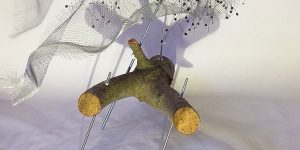
Mutations
The artistic proposal is presented as a curatorial articulation of multiple and heterogeneous work processes, but characterized by mutation. They are processes of works in mutation and on the mutation, like a seismograph of uncertainty. In their various formats, the works will be joined on the website of the UACh Réplica Gallery linked to the Ars Electronica Festival web platform.
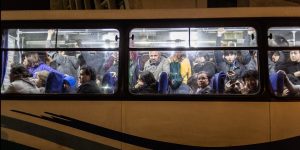
Mutations of the image. The revolt of photography
The first Valdivia International Festival of Photography, Directed by Carlos Fischer, was shaken by the revolt. The photographers changed their workshops on the streets. Lectures mutated. Images too. The abundant photographic material produced during those days in Valdivia, along with the video that reconstructs the convulsed days of the festival, make up an unexpected videogram of the revolt that can be viewed on the online platform of the Replica Gallery associated to UACh's Mutations project.
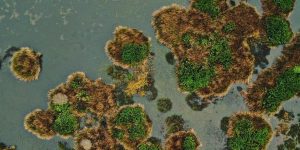
Ecosystem mutations. Wetland Removal.
An 8.5% of the surface area of Los Rios Region in southern Chile is made up of wetlands. Around the city of Valdivia, the presence of wetlands is particularly dense and some areas today are national monuments. A wetland is an ecosystem that is sometimes divided at the surface, but which constitutes a networked ecological continuum. Thus, to alter a part of the wetland is to modify the whole ecosystem. Promoting the convergence of different organizations, the Austral Garden program proposes an aerial route over the geography and natural environment where Universidad Austral de Chile is located. The purpose is that scientists and researchers can share their studies and reflections to spread the importance of wetlands, as well as showing the mutation of this natural eco-system.
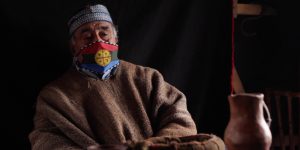
Local mutation imaginaries. Mapuche Culture Workshop.
As part of the celebration of the “Año Nuevo en el Sur” (Southern New Year), the Laboratory of Visual Anthropology of the Museological Direction, is conducting Workshops on Mapuche Culture taught by David Rain Canicura, peumatufe (the authority that guides the direction and decision-making of the community based on dreams) and nguillatufe (the authority responsible for the ceremony of Nguillatun). The proposal of the Mutations program is to generate a pre-recorded workshop that will allow the Mapuche imaginary about mutations to be better understood, as well as the experience of Mapuche communities in the current pandemic.
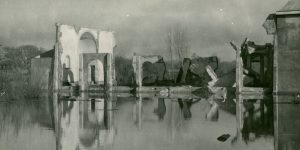
Telluric Mutations. The 1960 earthquake.
On May 22, 2020, 60 years since the largest seismic catastrophe ever recorded in the world was commemorated, a catastrophe whose epicenter was the city of Valdivia. The event had profound landscape, social, economic and cultural consequences for the affected cities and territories. The earthquake was a complex heritage where catastrophe and community resilience converge. The activity of the Austral Garden program is to share the series of initiatives prepared by the Museological Direction of Universidad Austral de Chile.
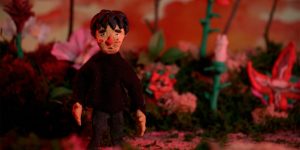
Prix Ars Electronica u19–create your world
This year’s u19 exhibition will invite all winners to exchange ideas and projects with each other. Their “homebase” will be the physical exhibition of the projects, where the winners can explain these to other artists and visitors. They will share their talents and show the audience of Ars Electronica Festival their view of possible future scenarios. In 2019, the Prix Ars Electronica's u19–create your world category was divided into two sections. First, ideas and projects could be submitted to YOUNG CREATIVES (up to age 14). This sub-category impressively demonstrates how children can help shape the present and future from their own perspective. For YOUNG PROFESSIONALS (14 - 19 years), innovative lateral thinkers who have developed an artistic or critical project for the world of tomorrow are in demand.
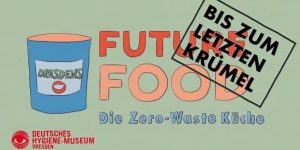
Dresden’s Future Food. Zero Waste Edition – To the Last Crumb
No idea what to do with old bread or the leaves of radish? In three short tutorials, learn how to prepare a delicious starter, main course and dessert by using seasonal and regional ingredients. Part of the Deutsche Hygiene-Museum’s digital “Future Food. What will we eat tomorrow?” program. In cooperation with Commerzbank Foundation.
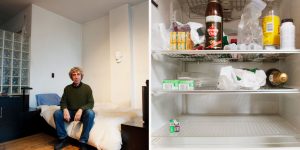
Virtual tour through the exhibition “Future Food. What will we eat tomorrow?”
Visitors can virtually explore the special exhibition Future Food. What will we eat tomorrow? that is held at the Deutsche Hygiene-Museum Dresden from May 2020 to Feb 2021. The exhibition takes up on one of the most urgent questions of the 21st century: how can we create the future of food facing the global challenges?
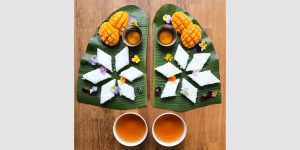
How do regional food systems work?
In times of multiple crises, the issue of food security is vividly debated. The panel discussion addresses opportunities and challenges of regional food production and supply with a focus on Dresden, Saxony.
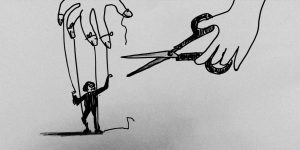
Festivalpost: Topic Twist
Ars Electronica create your world (AT)
The Festivalpost (engl.: Festival Post) may remind some people of beloved Postcity by name, but the content of Festival Post focuses on this year's festival topics. At least, in the beginning. By the alternation of words, meanings twist and turn and in the end, a chain, a transformation or some form of further development is created as Festival Post. Will democracy become a duck, autonomy a ladder, humanity an alien-eating rocket-pen? We are curious about the journeys the topics will take.

The Crying Book with Heather Christle and Performance by Gary Motley
Heather Christle, Gary Motley
The Crying Book is a deeply personal tribute to the fascinating strangeness of tears and the unexpected resilience of joy. Why do we cry? How do we cry? Heather Christle has just lost a dear friend to suicide and now must reckon with her own depression and the birth of her first child. As she faces her grief and impending parenthood, she decides to research the act of crying: what it is and why people do it. She researches tear-collecting devices and explores the role white women’s tears play in racist violence. Motley performs Someday Sunday as Christle reads from her first book of nonfiction, The Crying Book.

Meter machen
Maria Anna Eckerstorfer, Sabine Touzimsky-Köstler, Wolfgang Schreibelmayr, Lisa Wieder/ Kunstuniversität Linz, Projekt Abteilung Bildnerische Erziehung (AT)
Keeping distance is a very important rule. But as we humans are, situations arise that are hilarious, super funny or totally confusing. At this year's Ars Electronica Festival, we want to collect exactly such scenes. Send us a self-produced photo or a very short text about your experience by mail and follow us on Instagram at kunstuni.linz.metermachen.
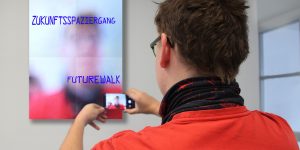
future walk
Bettina Gangl (AT), Birgit Pölz (AT), Helmut Doblhofer (AT) –TeilnehmerInnen Virtual Office FAB Linz (AT)
The young people at the Virtual Office have thought about autonomy and how automated processes and AI will influence our future lives. Through different strategies, they will visualize their fantasies, dreams and fears. They share their thoughts and future visions in an augmented reality walk.
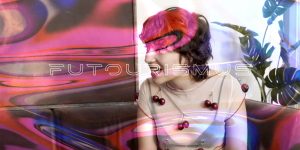
Tourismus von morgen
Ars Electronica, Oberösterreich Tourismus (AT)
Within the framework of the long-term project "Tourismus von morgen" (Tourism of Tomorrow), submissions from the pool of the Prix Ars Electronica category *u19-create your world* were selected for a commissioned project together with the organization Oberösterreich Tourismus.
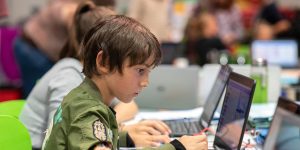
CoderDojo
CoderDojo Linz (AT)
The CoderDojo is a club for children and young people who want to learn programming and have fun doing it. In regular meetings, they learn how to write code, develop websites or program games and apps.
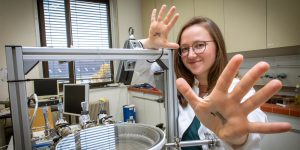
Reparatur der Zukunft
Ö1
With the Repairing the Future initiative, Ö1 wants to address the questions of 20 to 30-year-olds and give their ideas more space. Ars Electronica is presenting two projects around this theme
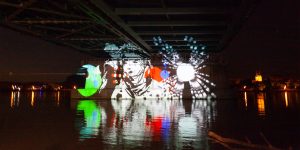
Tagtool Connect
Bei ihrem vierten Auftritt beim Festival Ars Electronica präsentieren OMAi die erste öffentliche Online-Multiplayer-Tagtool-Session, bei der sich ausgewählte internationale Künstler*innen über das Internet zusammenschließen, um spontane Projektionskunst zu schaffen.
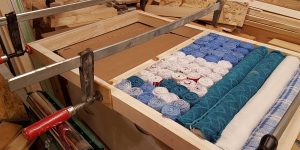
Master Class Audio Design Goes Interactive
Master Class Audio Design @ St. Pölten University of Applied Sciences (AT)
The Master Class Audio Design allows students to experience a wide range of audio designs. This is made possible by focusing on four projects which all students design, develop, plan, implement and evaluate independently over the course of four semesters. From this year's semester projects, three were selected to be presented at the Ars Electronica Festival.
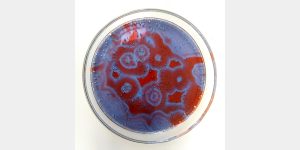
STEAM Popup Lab
JKU Linz School of Education (AT)
STEAM Popup Lab is a virtual journey to understand the meaning of patterns all around us. Patterns are everywhere, from fractals in nature to blood vessels in the human body, through the oscillating signals produced by the sensors of a phone. You can control robots, fold origami patterns, measure the signal of a playground swing, be part of a live chemistry lab session, and more.
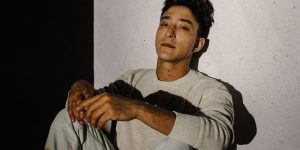
Science Gallery Detroit Presents Shigeto
Shigeto
Artists take on pseudonyms for a multitude of reasons, but in Zach Saginaw’s case those reasons run deeper than most. Shigeto is Zach’s middle name as well as his grandfather’s name: a tribute to the Japanese branch of Zach’s family tree. Shigeto also means “to grow bigger”—appropriate, given Zach’s premature birthweight of less than a pound. Today, Shigeto stands for Zach’s vividly beautiful electronic music. Beat-driven, but given to richly textured sound design; rhythmically fractured, but melodically sumptuous, Shigeto’s music is a bridge between the past and present, bringing the artist face to face with a creative legacy that spans decades.


